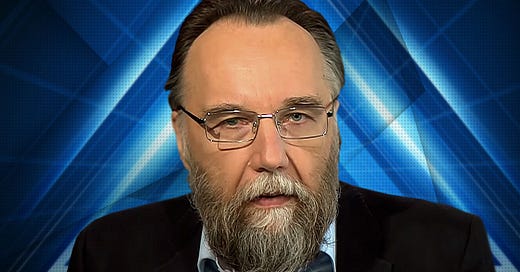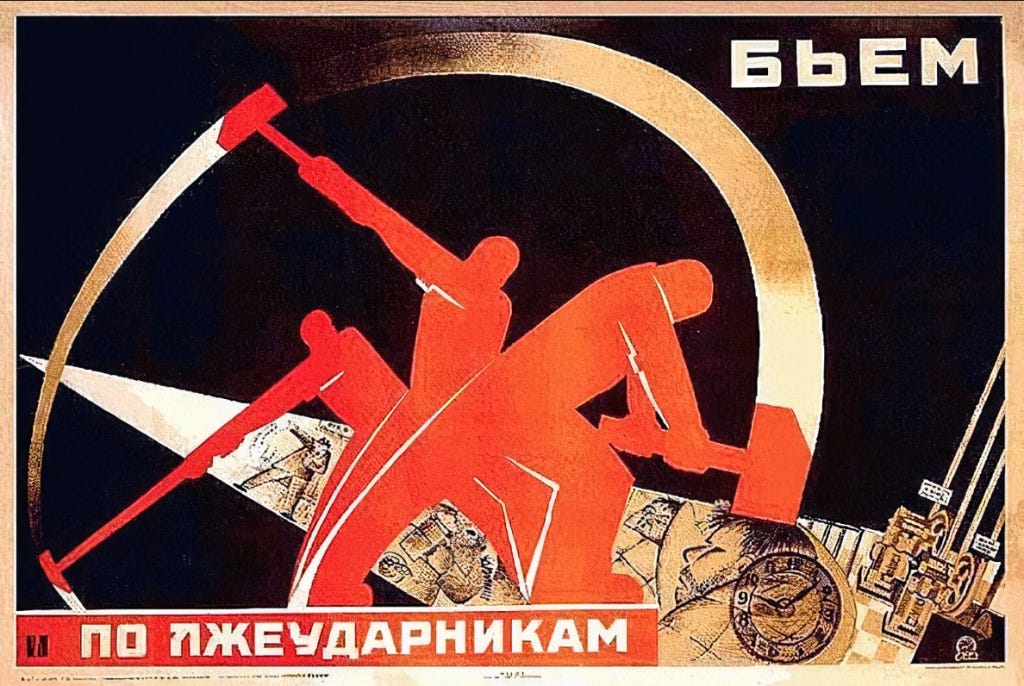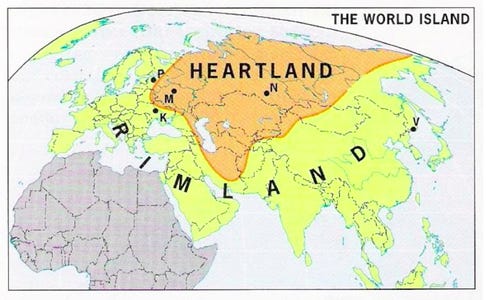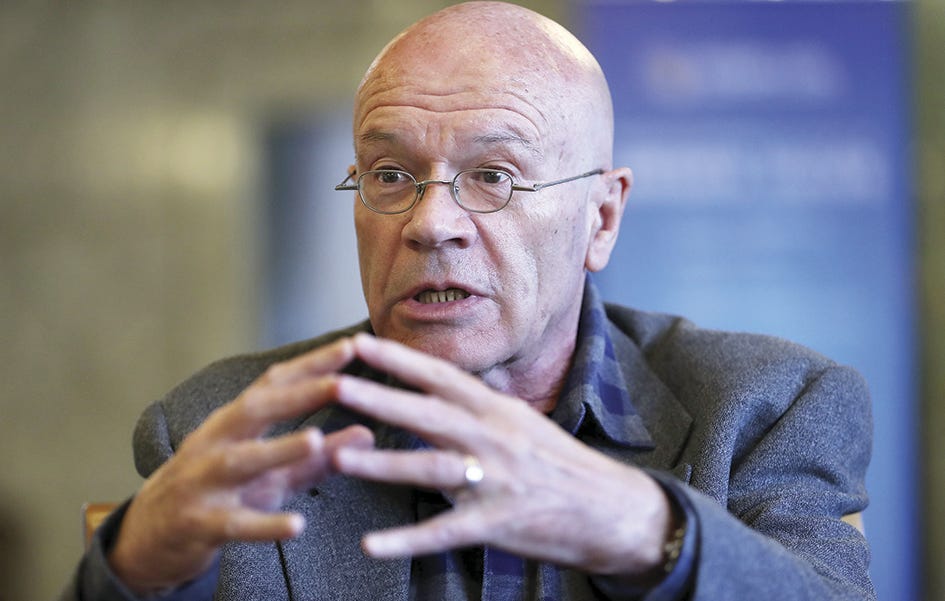Russian thinker Alexandr Dugin (1962-) is often presented in Western media as being “the most dangerous philosopher in the world”, a radical critic of modernity.
For that reason alone, I thought it would be useful to get some idea of who he is and what he is talking about.
But having started my research with a reasonably open mind, I have come away with a highly negative impression of the man sometimes regarded as Vladimir Putin’s eminence grise.
From his unsatisfying public utterances to his associations with the globalist system he claims to oppose, the founder of the “Fourth Political Theory” is not the man he wants us to think he is.
i. A confused ideology
As an anarchist, I very much oppose Dugin’s state-imperialist outlook and I am further repelled by his apparent involvement in some kind of Satanism.
In addition, looking at his philosophy, as represented in some recent English-language posts, I find it full of contradictions, such as with a rather obscure question regarding reality which I will explain in a footnote.*
I do find some apparent common ground in an opposition to modernism.
Dugin writes that “progress is a highly questionable thing” and he explains: “In the West, a war has been declared on all kinds of traditional values. This means that any collective group is being dismantled; any sense of the sacred is being rejected; everything is subjected to relativisation, and the individual is prioritised above all else”.
However, it is not for nothing that W.D. James places us in two opposing “anti-modernist” traditions, mine being of the “egalitarian” variety that has a very different interpretation of “traditional values” to that espoused by Dugin.
I am uneasy with Dugin’s frequent condemnation of individualism: individual freedom, for me, is the necessary bedrock of the communal well-being that he supposedly seeks, and the desirable fruit of that well-being.
But then, I suppose that we should not be surprised that a former leading light of the National Bolshevik Party in Russia would not be particularly interested in defending individual freedom against the demands of the state.
Neither perhaps, should we wonder why someone who continues to praise Lenin, Stalin and the old Soviet Union would offer no fundamental critique of industrialism – a phenomenon enthusiastically accelerated by communism and whose desirability is embedded in marxist ideology.
He does approve of the idea of “a simple society, organically (naturally) associated with a territory and bound together by common morality, customs, and symbolic systems” and he opposes transhumanism, but he does not fully confront the whole industrialist logic of “growth” and “development” in the way of thinkers like Jacques Ellul, Fredy Perlman and Jacques Camatte.
This is generally true of the broad “right” with whom Dugin is today usually identified, including the pseudo-radical “far right”. Its opposition to modernity tends to apply only to liberal social mores, rather to the machineries of Technik which crush our communities, homelands and lives.
To be fair, Dugin does take aim at the fake left-right dichotomy which impedes the evolution of authentic opposition to the system, calling for “the final overcoming of the boundary between the left and the right (that is, the obligatory rejection of contrived ‘anti-fascism’ by some and of contrived ‘anti-communism’ by others) and the elevation of populism as such – integral populism – into an independent ideological model”.
But I can’t help feeling that this “populism” is intended to embrace fascism and communism, rather than to reject them both, as I do.
I suspect that his version of the “Great Awakening” would be akin to one of those confusing moments in which one dreams one has woken up, when in fact one is still firmly asleep and trapped in the same nightmare!
This hunch is reinforced by a political awareness that seems astonishingly naïve and superficial for someone presented to us as being on the cutting edge of “extreme” opposition to the Western status quo.
Despite a passing reference to “Sorosite elites put on [in] their places by Rothschilds”, Dugin gives little indication of understanding the extent of criminocratic control.
He says that “the Great Reset was proclaimed by a handful of degenerate and panting old globalist men on the verge of dementia” who currently have, “working for them”, the stock exchanges and the “Wall Street crooks”.
It’s the other way round, surely?
With regard to the Biden presidency, Dugin refers to the “globalists who have retaken power in the US” – as if they could really ever have lost it.
And for all his talk of overcoming “the boundary between the left and the right”, he repeatedly walks straight into the binary trap with regard to US politics.
He enthuses: “Perhaps only Trump’s return to US leadership, or the onset of a full-blown civil war there, can save the world from Apocalypse”.
And: “Trump would be great for all of humanity, for America, for Europe, for us”.
Dugin likewise takes Elon Musk entirely at face value, as if he had nothing to do with the WEF and its Great Reset.
He is mightily pleased that “the X network also unblocked my account, which had previously been destroyed by previous Twitter unipolar liberal-Nazi team”.
There may be a very good reason for that…
Inevitably, his own dear leader receives the same starry-eyed treatment – “Putin’s mission has a religious dimension”.
And the same also goes for India’s Prime Minister, a regular Davos attendee who says that India has the ability to lead the very non-traditionalist Fourth Industrial Revolution.
Gushes Dugin: “More and more Hindus consider Narendra Modi an avatar, and the avataric dimension of the ruler is the divine basis of deep sovereignty”.
In general, Dugin appears again and again to be a mere cheerleader for the BRICS project of a repackaged “multipolar” world order.
For instance, he writes: “Next year, Russia will chair BRICS, making it an opportune time to advance multipolarity and bolster it ideologically, economically, financially, militarily, and strategically”.
He thinks that Europeans should be leaping at “the chance to become the seventh member of enlarged BRICS”, an alignment which is “something really historic”.
There is no hint of concern here, from this would-be questioner of globalism and its “progress”, about the most recent BRICS charter proclaiming the so-called “right to development” and reiterating a “commitment to enhancing and improving global governance”.
Despite this undisguised BRICS quest for one-world rule, when Dugin talks about “globalists” he only means the USA and its allies.
This sleight of hand allowed him to comment, with regard to the bombing of Gaza, that “now the globalists have to fight simultaneously Russia, China and World Islam”. His “globalists” aren’t very global!
He sets up a phoney opposition between the Bad Guys of the Great Reset and the Good Guys behind “the growing influence of a multipolar world” – phoney because they are merely different aspects of one overall project for “accelerating the implementation of the 2030 Agenda for Sustainable Development”, as the BRICS gang themselves put it.
And he completely denies that China has got anything to do with the Great Reset – “Beijing has cleverly used the ‘open world’ to pursue its national and even civilizational interests. And this was not part of the globalists’ plans”.
This is rather odd, since in 2022, WEF founder Klaus Schwab told Chinese state media that their country was a “role model” for his envisaged future and Chinese premier Li Qiang assured the WEF earlier this year: “Today, the Chinese economy is deeply integrated into the world economy. China has developed itself by embracing globalization, and grown into a most staunch force for globalization”.
But then Dugin has personal reasons for painting China in a good light, as we will see.
ii. The geopolitical chessboard
The discipline in which Dugin has earned his (surprising) global fame is geopolitics.
In some ways this has to be regarded as distinct from any particular political ideology, as it aims for an objective analysis of the forces at play in the world.
Even though the possibility of intervention to achieve certain ends is always present, it would be possible for observers hoping for very different outcomes to be in complete agreement about the issues at stake.
So there is no necessary contradiction in the fact that Dugin’s Eurasian geopolitics can be traced back, as Dr. Antony P. Mueller explains, to the English geopolitical geographer Halford J. Mackinder, who presented his thesis that the heartland of Eurasia is the “geographical pivot of history” at a meeting of the Royal Geographic Society as early as in 1904.
Dr Mueller adds: “In the 1920s, Karl Haushofer’s geostrategic vision of an axis from Paris, Berlin, and Moscow to Tokyo gained shape in Germany and also attracted Soviet strategists.
“Dugin’s geopolitical theory represents the continuation of this line of thought and follows Haushofer as well as Mackinder’s dictum: ‘Who rules East Europe commands the Heartland: Who rules the heartland commands the World-Island: Who rules the World-Island commands the World’.”
It doesn’t need much imagination to see that this kind of analysis would be of interest to those invested in “global governance” – in how best, and from what geographical basis, to rule the world.
Once upon a time that ideal basis may have been Britain, an island with easy access to the Atlantic sea routes, and later it may have been the United States of America, with its vast natural resources and access to the Pacific, as well as the Atlantic, plus its ability to police Latin America.
Has the 21st century global empire looked elsewhere for its Heartland and found that the Eurasian triangle of China, India and Russia very much appeals?
Dr Mueller writes: “A decade before Dugin’s geopolitical worldview gained prominence, the American geopolitical strategist Zbigniew Brzezinski had also identified the Eastern European heartland as a pivot region”.
There is not much to divide Dugin and Brzezinski’s geostrategic takes, he says.
“For both, Eurasia is the chessboard on which the struggle for global primacy continues to be played”.
Brzezinski, who died in 2017, was of course a key part of the “globalist” entity that Dugin so vociferously opposes.
A one-time US National Security Adviser, he created the Trilateral Commission with David Rockefeller, played a key role in normalising US-China relations and backed the Afghan mujahideen against the USSR.
Among his best-known books is The Grand Chessboard: American Primacy and Its Geostrategic Imperatives (1997).
Because geopolitics is about analysis, rather than taking a political stance, there is nothing compromising for Dugin in merely having reached the same conclusions as Brzezinski.
But the connection goes deeper than the theoretical level.
Dugin admits to having met Brzezinski in Washington in 2005 – he could hardly deny it when there is a photograph of them together!
And in this startling video, he reveals that he asked Brzezinski whether his famous chessboard was a game for two and the globalist replied that no, it was a game for one, with the sole player turning the table to make one move after another, for each apparent “side”.
Dugin declares: “My mission is to help Mr Brzezinski to move the figures on the chessboard”.
Are you sure Aleksandr? Are you sure you’re not just one of the globalists’ pawns?
iii. Shanghaied by the money men
A man is known by the company he keeps, they say, and in an October 2023 article Dugin names as a “friend” the high-profile Chinese academic Zhang Weiwei (pictured above).
Zhang is a very helpful friend, too, as he has appointed Dugin a Senior Fellow at the China Institute at Fudan University in Shanghai.
Shanghai, one of the biggest ports in the world, was among the first Chinese cities to be forcibly “opened up” to Western merchants and the British Empire in the 19th century by way of the “Opium Wars”.
Historian Niall Ferguson traces the role of the Rothschild family in all this and describes how by 1853 the Rothschilds’ business “was in regular correspondence with a Shanghai-based merchant firm, Cramptons, Hanbury & Co, to whom it made regular shipments of silver from Mexico and Europe”.
The Hongkong and Shanghai Banking Corporation (HSBC) has close links to the Rothschilds and also to Charles III, being the Prince’s Trust’s Global Founding Corporate Partner.
The China Institute, launched in Shanghai in 2015, doesn’t seem like a good fit with Dugin’s avowedly traditionalist and progress-sceptical outlook.
Its research centres include the Centre for China Development Model Research, the Centre for New Political Economy, the Digital Belt & Road Research Centre, and the Chinese Narratives Workshop plus it boasts a “strategic partnership” with the Shanghai Chunqiu Institute for Strategic and Development Studies.
According to Forbes, it was set up to focus on “the political and economic aspects of the Chinese approach to modernization”, which seems to clash with Dugin’s “anti-modernist” philosophy.
My eyebrows were raised by the discovery that another Senior Fellow there is none other than Britain’s own Martin Jacques.
As editor of Marxism Today, the theoretical magazine of the Communist Party, between 1977 and 1991, Jacques (pictured) controversially invited written contributions from “New Labour” globalists Gordon Brown and Tony Blair.
Co-founder of pseudo-left thinktank Demos, Jacques is author of a book called When China Rules the World: The End of the Western World and the Birth of a New Global Order, which really tells you all you need to know!
But what about Dugin’s friend and benefactor Zhang Weiwei, director of the state-linked China Institute? Who is he, exactly?
A senior English interpreter for Deng Xiaoping and other Chinese leaders in the mid-1980s, Zhang is proud to have travelled to over 100 countries across the globe.
He has addressed The Chicago Council on Global Affairs (“Issues. Ideas. Impact”), the Dutch Clingendael Institute (“an independent think tank and academy on international affairs which aims to contribute to a secure, sustainable and just world”) and Bruegel, a European economic think tank whose membership includes “EU Member State governments, international corporations and institutions”.
The central motivation for all this globalist gathering is, of course, the dark god of Development.
Zhang made this abundantly clear in 2019 when he gave a lecture and held discussions with “experts” at Britain’s Oxford Brookes University about China’s “development path” and the Belt and Road Initiative.
Reports The Global Times: “Citing statistics and examples to illustrate China’s development, Zhang said the Fourth Industrial Revolution has come to China with the surge of things like e-commerce and financial technology, as well as breakthroughs in artificial intelligence and quantum communication”.
Zhang’s “insightful and provocative opinions about China’s reforms and development” are also much appreciated by his colleagues at the World Economic Forum.
Zhang – Dugin’s “friend”, remember! – is in fact part of the aforementioned Shanghai Chunqiu Institute for Development and Strategic Studies, along with further China Institute colleagues Li Bo and Eric X Li.
Li Bo is also involved with the Tricontinental Institute, “an organisation which received $12.5-million from the Goldman Sachs Philanthropy Fund”.
This is a surreal world in which global capital and “left-wing” politics march hand in hand together and his research interests include “the history of socialism, socialism in China, the digital economy, and development economics and geopolitics around China and the Global South”.
Li Bo is additionally the academic representative of the Guancha Syndicate, linked to the Chinese Communist Party and described as a Chinese state propaganda outlet in a Reporters Without Borders study entitled “China’s Pursuit of a New World Media Order”.
Dugin’s communist-capitalist colleague Eric X Li is chairman of Chengwei Capital.
We learn from his Ted Talks profile: “A well-connected venture capitalist in Shanghai, where he was born, Eric X. Li studied in America (and even worked for Ross Perot’s 1992 presidential campaign) before returning home, where he started doubting the idea that China’s progress could only follow the path of the West’s free-market principles.
“In a much-discussed op-ed he wrote for the New York Times in February 2012 and in other writings, he has put forth the idea that China needed a different development framework, around a different idea of modernity”.
Again, how strange that “anti-modernist” Dugin wants to associate with these types!
As well as being on the board of directors of the China Europe International Business School, Li (pictured) is a Fellow of the Aspen Institute, an organisation which teamed up with the Mastercard Center for Inclusive Growth to host the 2021 Global Inclusive Growth Summit.
Excitingly, from Dugin’s staunchly anti-globalist perspective, this “featured discussions with global leaders, including US Vice President Kamala Harris, former US President Bill Clinton, World Trade Organization Director General Ngozi Okonjo-Iweala, and H.M. Queen Maxima of the Netherlands, who serves as the UN Secretary General’s Special Advocate for Inclusive Finance for Development”.
Significantly, Li is also a member of the council of the International Institute for Strategic Studies (IISS) – “We promote dialogue that enhances global security”.
A fellow member of this “world-leading authority on global security, political risk and military conflict” is none other than British venture capitalist and WEF stalwart Ronald Cohen, founder of “impact investment”, who seems to crop up in nearly every article that I research!
IISS’s funders include NATO, Rockefeller Brothers Fund, the UK Ministry of Defence, the UK Foreign and Commonwealth Office, the British Army, the Canadian Department of Defence, the Carnegie Corporation, BAE Systems, GKN Aerospace, the Embassy of Israel to the UK, the Kingdom of Bahrain and The Nicky Oppenheimer Foundation.
In conclusion, it is clear both from his writing and from his current connections with Brzezinski and the China Institute crowd that Alexandr Dugin, even if he was once a genuine radical, has sold out to the globalist system he pretends to oppose.
He is a “dangerous” philosopher only in the sense that he risks misleading genuine opponents of the criminocratic empire into cheering it on as it imposes its demonic, totalitarian, fasco-communist, hyper-industrialist and supposedly “multipolar” new world order.
* I was initially pleased to see that Dugin identifies a certain intellectual decline as occurring with the advent of nominalism, which broke down certain moral attitudes and certainties which had previously held society together, in favour of “atomism” and “relativism”.
I have myself written of “a deep underlying problem with contemporary thinking, in that it potentially denies the existence of objective reality”, the manipulative totalitarian denial of objective truth of which George Orwell memorably wrote in his novel 1984.
I warned about the narcissism that leads us to imagine elements of the world around us as “merely the constructs of human minds and language”.
So I was somewhat surprised to find Dugin, in a separate piece, condemning the “old way” of thinking which regards reality as, well… real, and insisting instead that it is entirely “a product of human consciousness”! Strange.




















Why do we need these people who pretend to be against the deluded corruption, but yet have their own delusions?
I never understood why people thought he was such a genius. He just repeats what's already out there. Nothing new, in fact it's kind of regressive.
Well, you firmly closed the lid on that, I must say! Like a-lister lefties, as you remarked over at Nevermore, there's a reason we know his name.